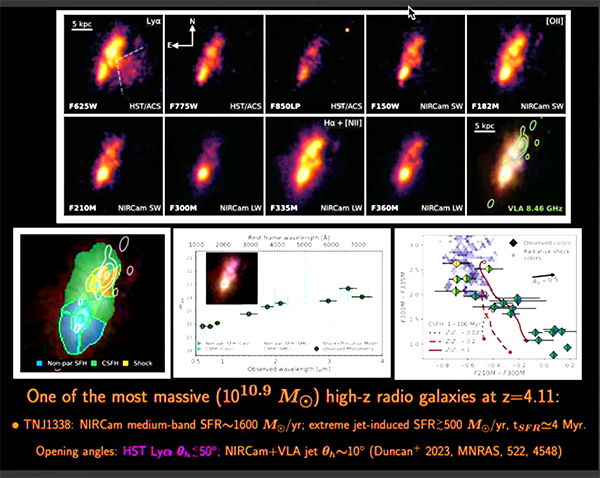NCAM 2024
In-Person Meeting Saturday, Oct. 5, 2024
No featured speaker this year
NCAM is an annual technical meeting that seeks to bring members of the N.C. professional astronomy community together to network and share research. The meeting usually draws 50-75 attendees from institutions around North Carolina and surrounding states. For the past two decades, NCAM has been held annually in late September or early October and usually includes a plenary presentation from an invited researcher, short oral sessions scheduled throughout the day, and space for research posters. We especially encourage presentations of student research. The meeting also usually includes special sessions related to regional light pollution efforts, strategies for teaching undergraduate astronomy courses, and other timely topics.
Meeting registration
There is no registration fee for the NCA meeting, but we ask that all participants register using the form linked below, so that we can set the agenda of presentations and get a reasonably accurate headcount for ordering refreshments and printing programs. There will be a sign-in table in the lobby of the conference venue.
Directions and maps
The meeting is in the Koury Hospitality Careers Building on the Jamestown campus of GTCC. Koury is building 19 on the Jamestown campus map. Its physical address is 621 E. Main St, Jamestown, NC, 27282. Park in Lot F.
Local lodging
There are plenty of hotels around the area. Use the Greensboro Convention and Visitors Bureau website to find accommodations if you plan to stay overnight.
Abstract submission
If you would like to present an oral or display presentation at NCAM, please register using the link above. (If you have questions contact Tom English at trenglish@gtcc.edu or 336-334-4822, ext. 50023.)
Display presentations
Display panel space will be available for 15 to 20 posters.
Oral presentations
The proposed plan is for standard oral presentations to be 10 minutes including Q&A, though this could change, depending on the number of submissions. After you submit the registration form (see link above), you should receive confirmation of receipt within a day of submission. If not, call or e-mail Tom English at at trenglish@gtcc.edu or 336-334-4822, ext. 50023.
NCAM Past Editions
2023
Rogier Windhorst, Arizona State University/JWST, "Chasing the Reionizers of the Early Universe." Click here to watch a video of this presentation.
2022
Rebekah Dawson, Penn State University, "Multifaceted Views of Exoplanet Systems"
2021
Shep Doeleman, Harvard Smithsonian Center For Astrophysics/EHT, “Imaging a Black Hole with the Event Horizon Telescope”
2020
NCAM canceled due to the COVID -19 Pandemic
2019
Cathy Olkin, Southwest Research Institute, “What we have learned about Pluto and the Kuiper Belt from NASA’s New Horizons Mission”
2018
Gabriela González, Louisiana State University/LIGO, “Gravitational Waves Astronomy”
2017
John Mather, NASA Goddard Space Flight Center, “From the Big Bang to the End of the Universe, and How We’ll Learn More with the James Webb Space Telescope”
2016
David Charbonneau, Harvard Smithsonian Center for Astrophysics, “The Compositions of Small Planets”
2015
Sean Solomon, Lamont-Doherty Earth Observatory/Columbia Univ., “MESSENGER at Mercury: Technical Challenges and Implications for the Formation of the Inner Planets.”
2014
Jocelyn Bell Burnell, University of Oxford, “Reflections on the Discovery of Pulsars”
2013
Don Winget, University of Texas at Austin, “A Close-up Look at White Dwarf Stars: From Kiloparsecs to Centimeters”
2012
Robert A. Benjamin, University of Wisconsin-Whitewater, “How to Map the Milky Way”
2011
Francis Halzen, University of Wisconsin-Madison, “IceCube: Particle Astrophysics with High Energy Neutrinos”
2010
Giovanni Fazio, Harvard Smithsonian Center for Astrophysics, “Observing the High Redshift (z > 5) Universe with the Spitzer Space Telescope”
2009
Hal Levison, Southwest Research Institute, “The Early Dynamical Evolution of the Outer Solar System: A Nice Story”
2008
Neil Gehrels, NASA Goddard, “Gamma Ray Burst Discoveries with the Swift Mission”
2007
Michael Turner, University of Chicago, “Cosmic Acceleration: New Gravitational Physics or Mysterious Dark Energy”
Special Panel Discussion: The past 10 years in Astronomy and a Look to the Coming Decade
Moderated by Robert Naeye (NASA Goddard)
Panel: Jay Bergstralh (NASA Langley), Bruce Carney (UNC-Chapel Hill), Prasun Desai (NASA Langley), Virginia Trimble (U. Cal.-Irvine), Michael Turner (U. Chicago), John Wood (NASA Goddard)
2006
Scott Ransom, NOAO-Charlottesville, “A Millisecond Pulsar (and Basic Physics) Bonanza with the GBT”
2005
Jeff Hester, Arizona State University, “Understanding Our Origins: Formation of Sun-like Stars in Massive Star Environments”
2004
Paul Butler, Carnegie Institution, “Extrasolar Planets”
2003
Prasun Desai, NASA Langley, “2003 Mars Exploration Rover Mission: Return to the Surface”
2002
Steve Murray, Harvard Smithsonian Center for Astrophysics/Chandra, “Chandra 101: X-ray Astronomy Made Easy”

